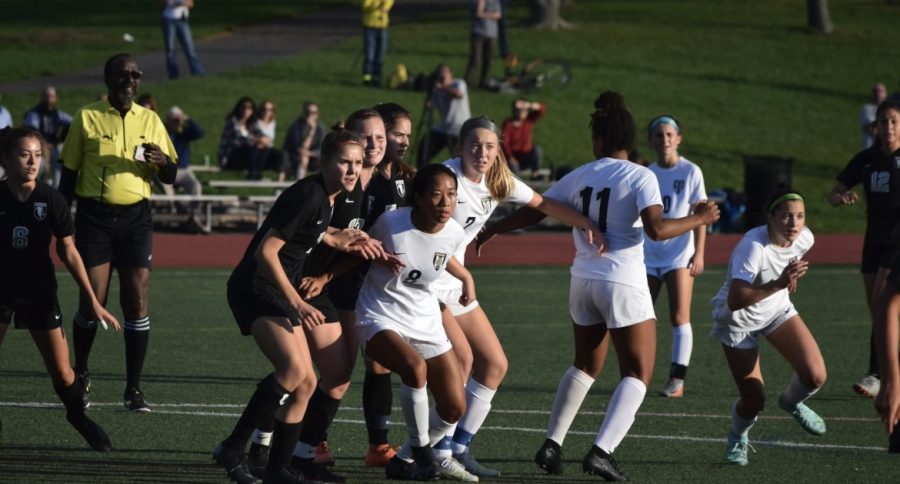We Must Start Talking About Mental Health in Sports
Pictured: CRLS Varsity Girls soccer team.
February 6, 2022
During the 2020 Tokyo Olympics this past summer, one of the most notable stories was Simone Biles, arguably the greatest gymnast of all time, withdrawing herself from the women’s all-around competition due to battles with her mental health. Earlier in June, star tennis player Naomi Osaka pulled herself out of the French Open, citing her recent struggles with depression. The two athletes faced major backlash for their withdrawals, a response that revealed the dire need for increased mental health awareness in sports at any level.
Though mental health has become a more frequently discussed topic among younger generations in recent years, it’s less common for conversations to be raised about the mental health struggles athletes face. Mental health is stigmatized in sports to the point where it is seen as a weakness. Just as an athlete might conceal an injury, one might hide their mental health issues.
According to the LA Times, the percentage of young elite athletes experiencing depression and anxiety jumped from 20% to 45% during the pandemic. This increase is likely due to the lack of resources available to athletes for their mental well-being throughout the pandemic, and the challenges of living in isolation. Reflecting on these statistics calls into question the immense amount of pressure and competition involved in athletics and how it might truly affect young athletes.
Studies showing how common mental illness is among athletes are generally done on those who compete at an international level, but high school athletes and those even younger also experience similar pressure and mental health issues. With school, extracurricular activities, and expectations from families and society, there is an immense amount of stress in the lives of student-athletes. COVID-19 has affected students’ mental health even more, with online learning causing developmental setbacks to confidence levels and social skills. Usually, sports are a tool to relieve that stress, providing a motivating and self-assuring experience. But as more athletes start to speak out, there is a common pattern revealing that those activities, without the necessary balance of resources, support, and flexibility in times of struggle, can become another aspect of our lives that increase anxiety.
It’s important that we recognize and support the courageous athletes vocalizing their struggles with mental health. Parents, coaches, teachers, and even teammates need to help create an environment where young people feel safe to talk about their mental health and where they know they’ll be listened to. This starts with becoming more open to learning about mental illness in sports, as well as widespread education on how to be more involved in advocating for oneself and one’s peers. As more mainstream elite athletes speak up about their stories, it’s also vital that we continue to break down the societal belief that dealing with mental health is an exaggeration or a weakness. By supporting elite athletes and their mental battles, we’re also leading the way for student-athletes. As we start to have these crucial conversations, more young athletes will feel less alone. Sports are supposed to be fun, healthy competition; let’s not risk ruining that by neglecting athletes’ struggles.










